
READ MORE: Back to the Future: Myspace and Gen Z Digital Identity (Digital Native)
Gen Zers are rejecting the sterile, constrained online identities forged by older social platforms in favor of more customized forms of online expression.
The next generation of internet users wants customizable and consistent digital identities — a reaction to the uniform, dull, and inconsistent identities of the last decade.
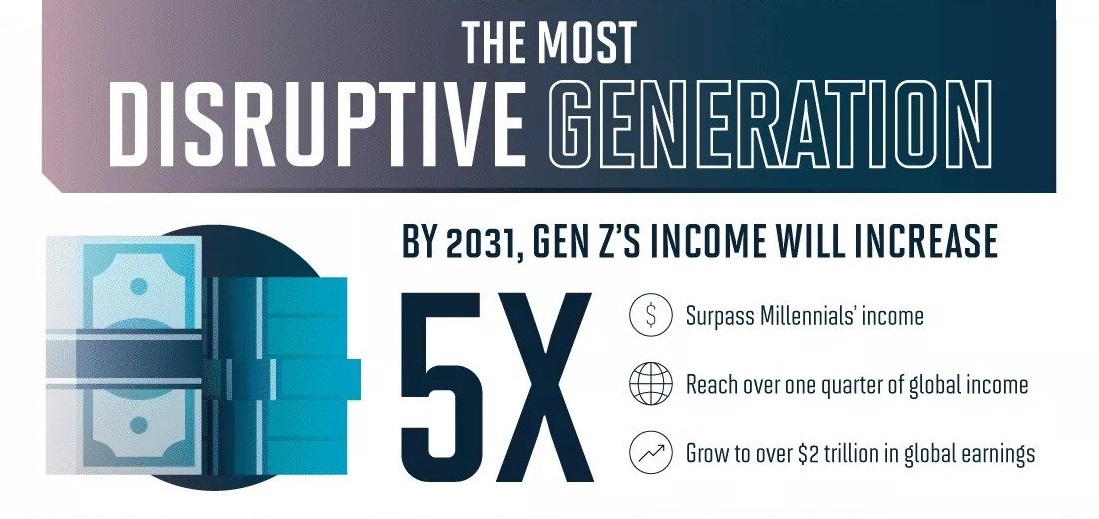
In a well-argued essay, Rex Woodbury, by day an investor at digital start-up specialist Index Ventures and by night a blogger on consumer technology, identifies that companies set to lead the next era of online expression “will embrace Gen Z’s ethos of creativity, self-expression, and unabashed authenticity.”
That’s in marked crossed to the siloed, disjointed, and frankly rather dull digital identities developed for us by older generations by the likes of Facebook and LinkedIn.
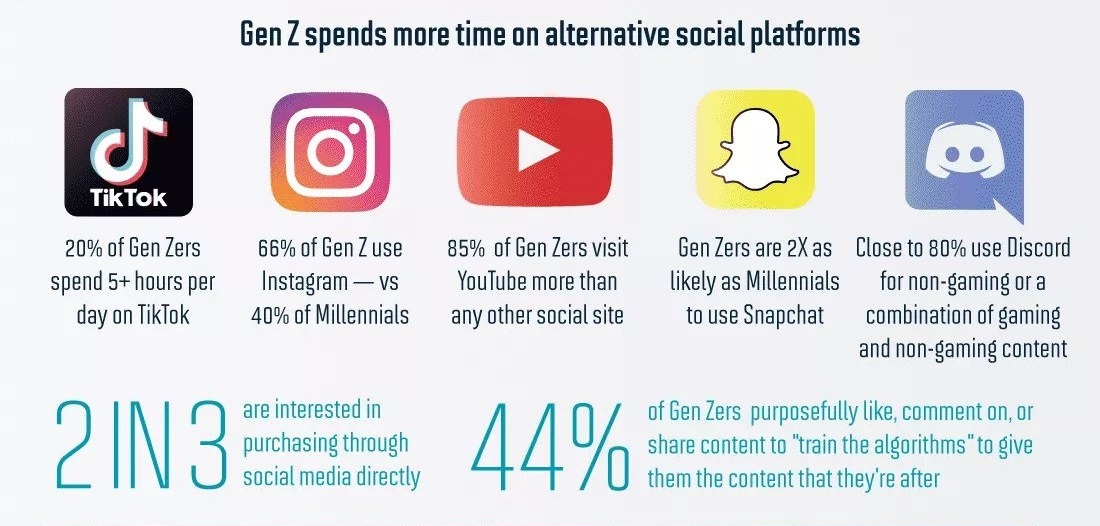
“Gen Z’s today are embracing two new tenets of digital identity: customizability and consistency. Customizability reclaims the self-expression of Myspace. Digital natives gravitate toward products that let them stand out online, a rejection of Facebook’s white-and-blue uniforms.”
READ MORE: Back to the Future: Myspace and Gen Z Digital Identity (Digital Native)
Scout, for example, is building 3D virtual rooms that users can fully customize and curate, all in the browser. Scout’s founder, Zack Hargett, calls Scout “Myspace for the Roblox generation.”
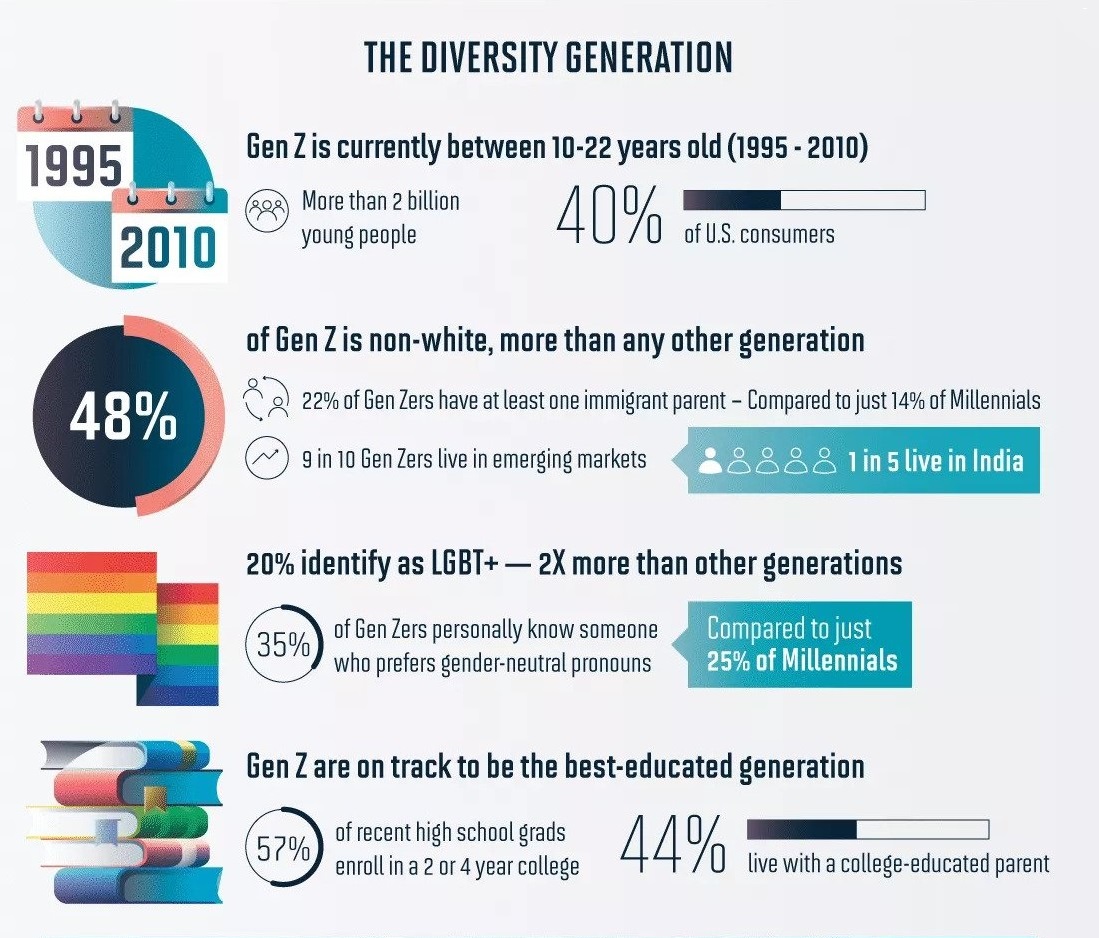
The digital native generation is being trained to customize rich, complex virtual worlds. Scapin’, for instance, lets anyone create customized virtual spaces to hang out with friends or strangers. In some ways, it’s Roblox for adults. Other startups, like Dreamworld and Manticore Games, are blurring the lines of sandbox games, social networks, and customized virtual spaces.
A Gen Z Tsunami: Are Brands Ready?
By Abby Spessard
On track to account for a whopping 25% of global income by 2030, Gen Z is coming in hot. “Until now, they’ve had to cope with the world around them,” Kate Wolff, founder and CEO of Lupine Creative, writes for Adweek. “But believe that when they sit in full power, brands will have to cope with them.” That includes embracing Gen Z’s unique identities and engaging with immediacy and authenticity.
Demographically, Gen Z is the most diverse generation the country has ever experienced and, according to the Pew Research Center, only 52% of Gen Zs are white. Highly adept at recognizing racism in institutions, this generation has witnessed firsthand “the racially charged backlash against our first Black president.” Approximately 20% of Gen Z adults identify within the LGBTQ+ community. And while they may be more open about this, “they’ve also witnessed exclusion, bullying, harassment and violence, particularly against trans people.” As more Gen Zs enter adulthood, the 75% who believe abortion should be legal will only increase.
Wolff uses the term “otherness” when talking about Gen Z, which currently includes those between the ages of 10 to 25. She explains that “being ‘other’ means living with a behavior code. ‘Don’t be too gay’; “Don’t be too Black”; ‘Don’t bring the troubles of motherhood to the office.’ Gen Z will reject all these notions.” Alongside rejecting the status quo, “the marginalized will rightfully insist on taking their place in all sectors of society. But it’s challenging terrain for brands when everyone believes they are ‘other.’ ”
This challenging terrain is rife with potential pitfalls for brands wooing Gen Zs. “Their entire lives have been documented online, beginning with their parents. They’ve never had the anonymity to experiment or make mistakes without those missteps potentially following them forever.” Gen Z knows by experience how actions have consequences, Wolff comments, and now it’s time that brands learn this too. “Brands can’t just leave difficult conversations. Responding quickly has become imperative.”
Consumer analytics firm ThinkNow found that Gen Zs are less likely than millennials to support companies that make public commitments but don’t follow through. “It’s not that Gen Z doesn’t want companies to say the right thing — they do, but they also want actions.”
A recent example is Disney.
Disney is still facing the consequences of financially supporting politicians who backed Florida’s “Don’t Say Gay” bill. At first, they did what other big companies have done when in the same situation: release a statement. But for Gen Z, that wasn’t enough.
“After the backlash, its Pixar studio reinstated a previously cut kiss between two women into the final edit of its latest Toy Story film Lightyear. (In response, the film was banned by 14 countries.) Disney took a stand, and this type of intentional action is what Gen Z consumers expect from the brands they bring into their lives.”
Wolff acknowledges that Gen Z won’t be able to change the hearts and minds of other generations since that’s up to the individual. “However, Gen Z will hold people, institutions and brands accountable. It’s time to write a new playbook focused on audience nuances and brand bravery to reach them.
“Adapt or die, indeed.”
READ MORE: Gen Z Is Resilient and Honest, and They Expect the Same From Brands (AdWeek)
They’re also using new tools to personalize digital identity. Companies like Figma and Kapwing offer accessible products that let anyone manipulate software for their own self-expression. Content platforms like TikTok embed creator tools into the app.
“There’s no longer a need for specialized knowledge of Adobe Premiere — you can make professional-grade content with native editing tools and special effects.”
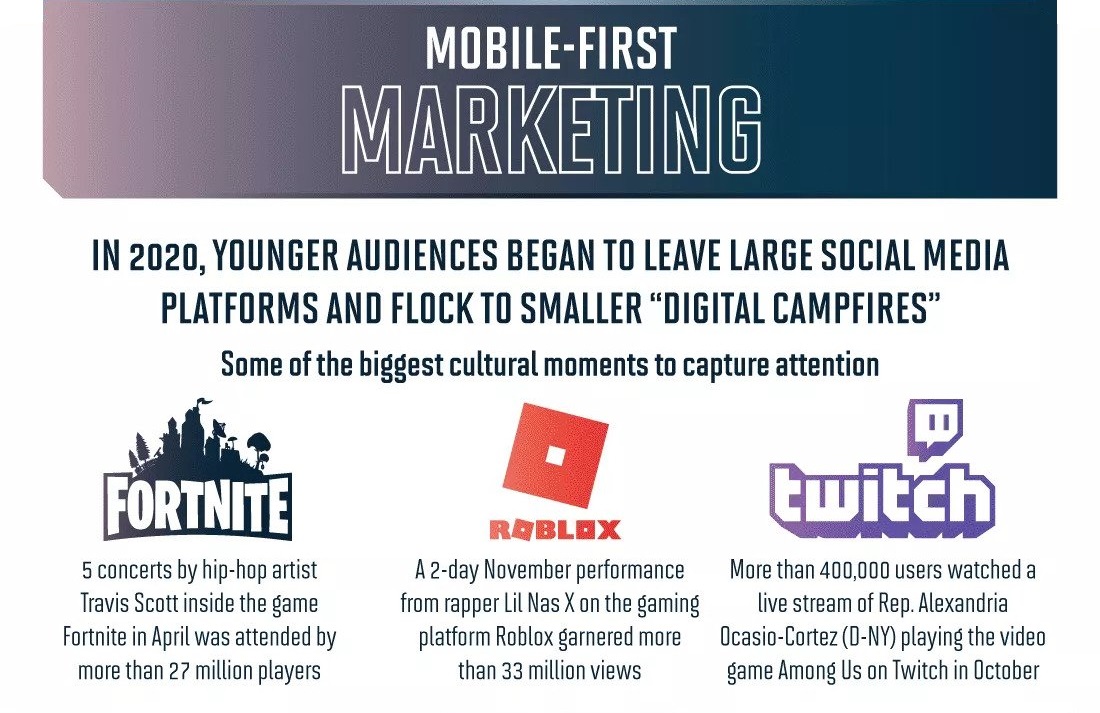
READ MORE: Scout, Fresh Off Of Raising $1.2 Million, Has A Growing Waitlist Of Over 150,000 People Hyped About The Metaverse (Forbes)
The other key component in Gen Z’s digital identity is consistency. Millennials, Gen Xers, and Boomers were taught to behave differently on different platforms. On LinkedIn, you’re professional; on Facebook, you’re family-friendly; on Instagram, you’re stylish; on Tinder, you’re sexy.
“Gen Z’s view LinkedIn as a cringeworthy, out-of-touch place for older internet users to subtly (or not-so-subtly) humblebrag. Gen Z’s [are exhausted] with the status-seeking, back-patting, clout-chasing DNA of social media. Digital natives would rather have a single consistent identity threaded across platforms.”
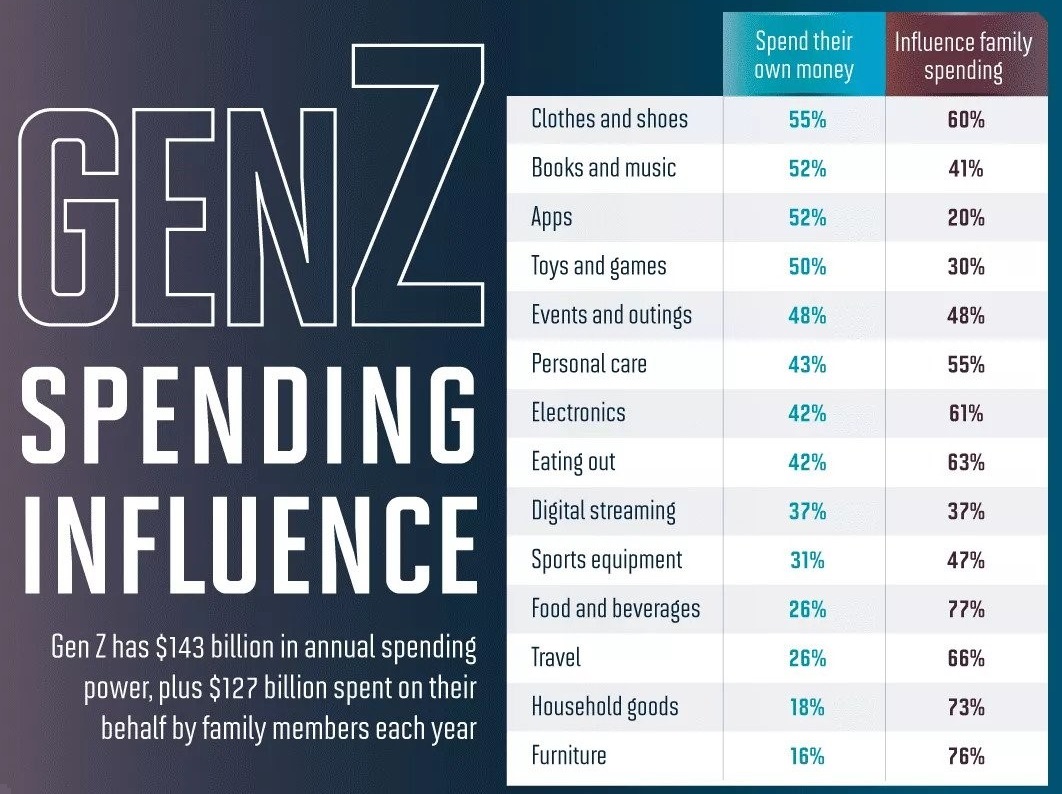
For Gen Zers, online identity is consistent across platforms; authenticity and self-expression are paramount and not platform dependent.
“For people who have lived their entire lives on the internet — people who will spend more and more time in virtual worlds over the coming decades — online identity is an extension of unvarnished, unairbrushed offline identity. It’s something to be consistent and authentic, as well as meticulously customized to maximize self-expression.”
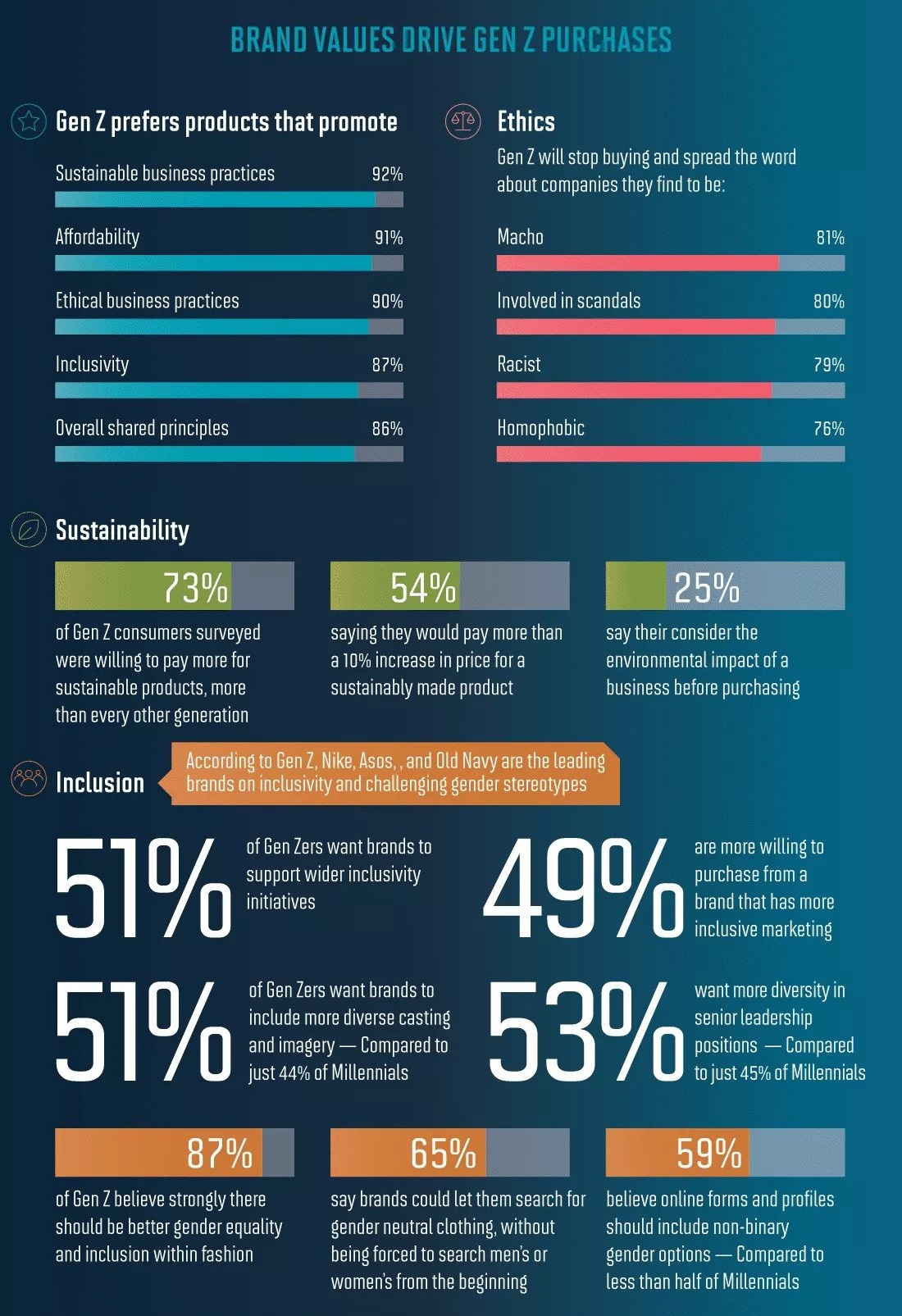


Discussion
Responses (1)